Observation and Measurement of Coils Using Digital Microscopes
Coils are used not only for electric generators and motors but also for products in various industries such as IC cards, mobile phone chargers, and antennas. This section introduces examples of observation and measurement of coils using digital microscopes.
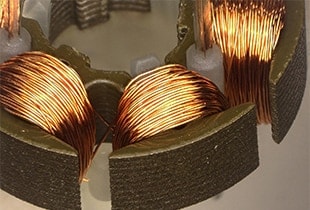
What is a Coil?
The structure of a coil is basically an electric wire wound around many times. Many products take the shape of a coil, such as springs, and those used in electrical circuits are literally called coils (inductors). Coils can form resistors, capacitors, and inductors, which are all passive elements used in electrical circuits.
Types of Coils
Coils are classified into different types according to the wire winding shape, structure, and function.
Classification by wire winding shape
- Solenoid type
-
This type is easy to wind and is commonly used. There is a large amount of leakage flux.
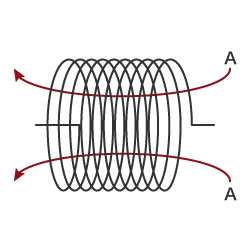
- Toroidal type
-
This shape reduces the leakage flux.

- Spiral type
-
The wire winding can be planar, which is suitable for inclusion in chips.
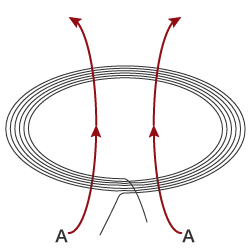
- A: Magnetic flux
Classification by structure
- Wound coil
- In this structure, a copper wire covered with an insulator is wound in a spiral.
- Laminated coil
- The coil is formed by laminating multiple conductor layers on a sheet or PCB. This structure is compact and has excellent frequency characteristics.
- Thin film coil
- The coil is formed with metal film that is thinner than printed conductors by sputtering or using deposition techniques. Compact and highly precise coils can be manufactured.
Classification by function
- Choke coil
- Coils used in power supply circuits are called choke coils. Chokes smooth out power supply and eliminate noise.
- Tuning coil
- Signals at specific frequencies can be extracted. Tuning coils are used for wireless circuits and audio circuits.
- Antenna
- Antennas are made by wrapping a conducting wire around a ferrite rod and are used for AM radio.
- Transformer
- Transformers are also a type of coil that are used to convert AC voltage and voice signals.
Coil Observation and Measurement Examples Using Digital Microscopes
These are the latest examples of observation and measurement of coils using KEYENCE’s VHX Series 4K Digital Microscope.
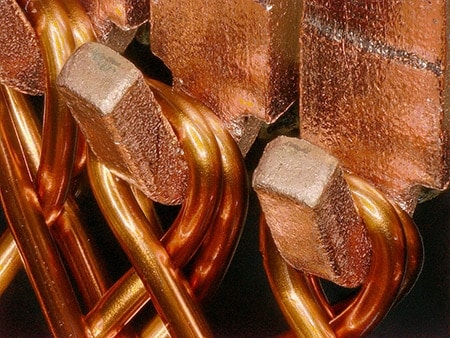
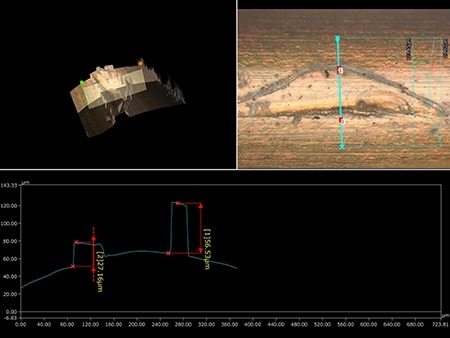
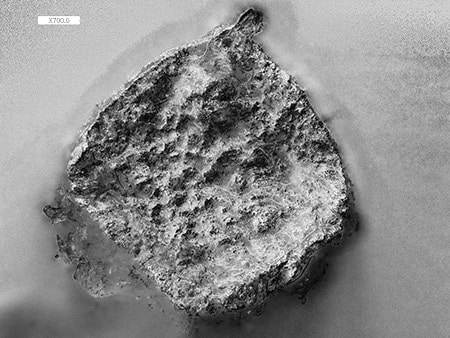
700×, ring illumination + Optical Shadow Effect Mode image
Using the Optical Shadow Effect mode reveals fracture and surface irregularities.


